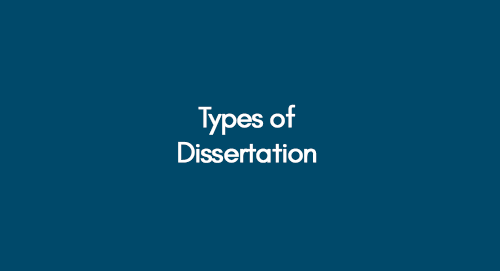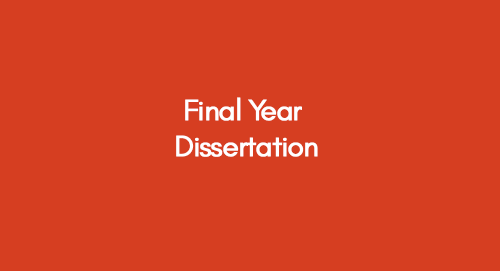
Exploring Various Types of Dissertation
May 16, 2023
LLM Dissertation Examples
May 17, 2023A dissertation represents a rite of passage into the professional world. It is a milestone that demands resilience, critical thinking, and unwavering commitment.
Review Our Quality Dissertation Topics
Get 3+ Free Dissertation Topics within 24 hours
In this blog, we will explore the arduous yet rewarding path of crafting a final-year dissertation, the strategies employed, and the ultimate sense of achievement that comes with it.
With this guide, you can write a successful dissertation in no time! Also, you can visit our dissertation examples below:
Example 1: Effects of Virus on Hospitality and Tourism
Example 2: Impact of Leadership Style on Professional Satisfaction of Nurses: A Case Study
Note: Below is a complete guide with some more examples and tips for you to ace the skill of final year dissertation writing.
What is Final Year Dissertation?
An educational journey is incomplete without the final year dissertation. This in-depth research project requires independent investigation, critical thinking, and scholarly writing skills.
This comprehensive study, often conducted during the final year of undergraduate or postgraduate studies, allows students to explore a specific topic of interest within their chosen field of study.
The purpose of a final-year thesis varies depending on the academic program and institution. However, it typically aims to demonstrate a student's ability to apply theoretical knowledge, conduct original research, and contribute to the existing body of knowledge in their field.
It is a capstone project showcasing the student's intellectual growth, analytical prowess, and academic proficiency.
Example of Final Year Dissertation for Better Understanding
A final year's dissertation examples that give you a more valuable understanding of writing.
Case Study: Investigating the Impact of Social Media on Youth Mental Health: A Quantitative Analysis
Abstract
This final-year dissertation aims to explore the relationship between social media usage and youth mental health. The study employs a quantitative research design, utilising survey questionnaires to collect data from a sample of 500 university students. By analysing the collected data using statistical techniques, the research aims to uncover the potential effects of social media on various aspects of mental well-being, including self-esteem, body image, and psychological distress. The findings of this study will contribute to the existing literature on the topic, providing valuable insights for mental health professionals, educators, and policymakers.
Chapter 1: Introduction
1.1 Background
1.2 Research Problem
1.3 Research Questions
1.4 Objectives
1.5 Significance of the Study
1.6 Scope and Limitations
Chapter 2: Literature Review
2.1 Social Media and Its Influence
2.2 Youth Mental Health: Challenges and Concerns
2.3 Previous Studies on Social Media and Mental Health
2.4 Theoretical Framework
Chapter 3: Methodology
3.1 Research Design
3.2 Participants and Sampling Technique
3.3 Data Collection Instruments
3.4 Data Analysis Techniques
Chapter 4: Results and Analysis
4.1 Descriptive Statistics
4.2 Correlation Analysis
4.3 Regression Analysis
Chapter 5: Discussion
5.1 Summary of Findings
5.2 Comparison with Previous Studies
5.3 Implications for Practice and Policy
5.4 Limitations of the Study
5.5 Recommendations for Future Research
Chapter 6: Conclusion
6.1 Summary of the Study
6.2 Contributions to the Field
6.3 Final Thoughts and Reflections
References
Appendices (Survey Questionnaire, Informed Consent Form, etc.)
Note:
This final-year project dissertation example provides a basic outline for a final-year dissertation. The actual content, research methodology, and analysis techniques will vary depending on the specific topic and discipline chosen by the student.
Steps to Write an Excellent Final Year Dissertation
The Initial Stages: Choosing the Right Topic
Dealing with the tough task of selecting a dissertation topic is where the journey begins. It's a decision that shapes the entire research process. Engage in introspection, explore your interests, and seek guidance from professors. Find a topic that sparks your curiosity and aligns with your academic strengths and future aspirations.
How to Write a Unique Dissertation Title: Tips and Examples
Building the Foundation: Extensive Research
Research is the bedrock upon which a successful final-year project dissertation is built. Dive into the vast ocean of scholarly articles, books, and relevant materials. Develop effective research strategies, organise your findings meticulously, and keep a record of your sources. A solid foundation of knowledge will bolster your arguments and lend credibility to your work.
Crafting a Stellar Proposal: The Blueprint for Success
A well-crafted research proposal acts as a blueprint, guiding your efforts throughout the dissertation process. Present a clear and concise overview of your research objectives, methodology, and anticipated outcomes. Seek your advisors' feedback, ensuring your proposal is robust and feasible. Remember, a strong proposal sets the stage for a remarkable final product.
The Research Odyssey: Navigating Challenges
Starting your research journey, you will inevitably encounter challenges along the way. Data collection may prove arduous, experiments might fail, or the limitations of your study may become apparent. Embrace these challenges as opportunities for growth. Seek assistance from your supervisor and peers, adapt your approach, and persevere. The path to academic excellence is paved with resilience.
Structure and Organisation: Creating a Cohesive Narrative
A well-structured dissertation tells a compelling story. Organise your work into logical sections, ensuring smooth transitions between chapters. Introduce each section clearly, present your arguments coherently, and use subheadings to guide your reader. A structured document enhances readability and showcases your ability to synthesise complex ideas.
How to Structure Your Dissertation for Optimum Impact?
Analysing and Interpreting Data: Unveiling Insights
Data analysis is the key to unlocking meaningful insights within your research. Use appropriate statistical methods, visualisations, and software tools to analyse your data effectively. Interpret the results in the context of your research questions, highlighting patterns, trends, and correlations. Remember, the value of your work lies in the knowledge you extract from the data.
Critical Thinking and Originality: The Marks of Scholarship
A final-year dissertation demands critical thinking and originality. Engage in rigorous analysis, challenge existing theories, and propose novel perspectives. Demonstrate your ability to evaluate, synthesise, and contribute to the scholarly discourse in your field. Your dissertation is an opportunity to make your mark as a budding scholar.
Writing with Clarity: Communicating Ideas Effectively
Clear and concise writing is essential to convey your ideas with impact. Avoid jargon, use simple language, and ensure coherence within and across paragraphs. Proofread meticulously to eliminate errors, and seek feedback on your writing style. A well-written dissertation captivates the reader, enhancing the overall quality of your work.
Conclusion
Completing a final-year dissertation is a feat that should be celebrated. It represents a significant personal and intellectual accomplishment. Through dedication, perseverance, and intellectual growth, you have ventured into the depths of research, emerging with a work that contributes to the body.
Get 3+ Free Dissertation Topics within 24 hours?


























